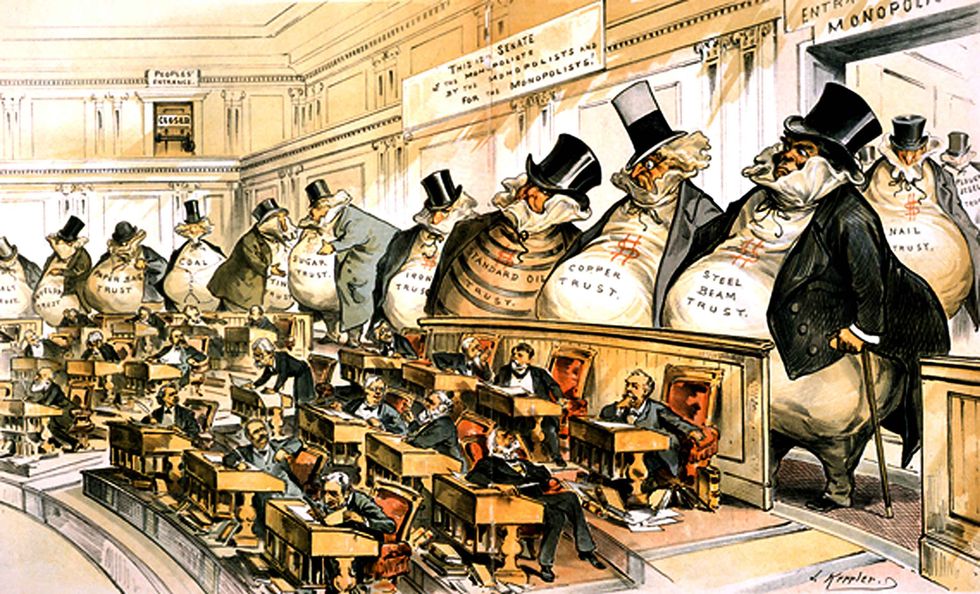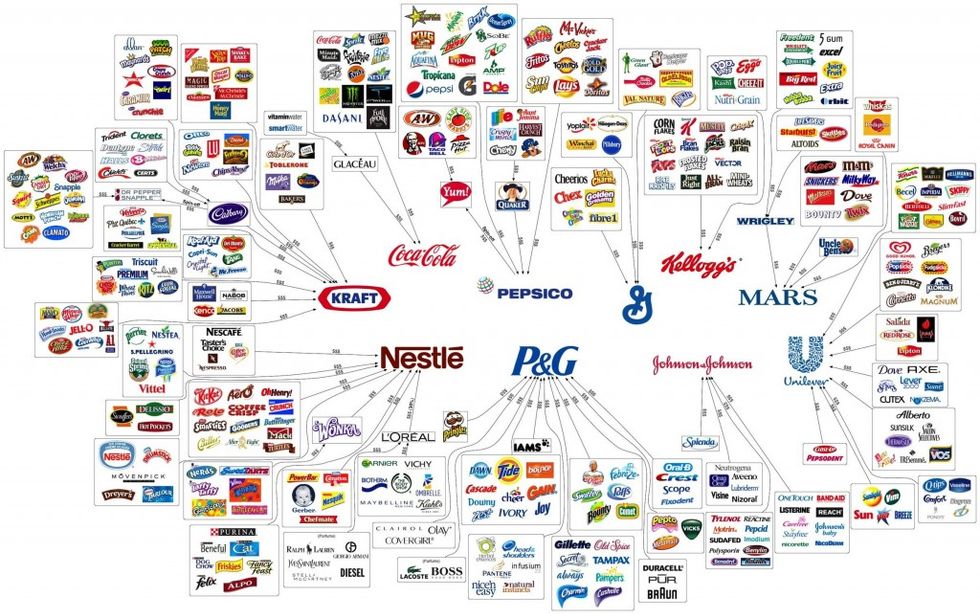Last month, I received the most expensive utility bill of my life. I won’t tell you how much it was, but I will tell you that it was more expensive than the utility bill at my two-story house back in Orlando. To give you some reference, I currently live in a two-bedroom apartment. When I called GRU (the electric billing company in my city), I was put on hold for twenty-five minutes. And when a GRU associate finally answered, he realized that GRU had actually charged me $50 more than my bill was supposed to be.
GRU has a monopoly on Gainesville energy, which explains the long wait times and the reason they can get away with overcharging customers. (I’m sure I wasn’t the only one who got overcharged.) Similarly, Cox has a monopoly on Gainesville Internet, among other locations. Despite Gainesville being known for startups, monopolies such as GRU, Cox, and others continue to thrive, preventing smaller businesses from entering the market, driving companies out of business, and decreasing incentives to improve services.
Personally, I am a huge fan of the Monopoly Board Game. I could spend hours playing it—dominating the board with all my properties, sifting through “community” and “chance” cards, and laughing at my opponents. It is a game of luck and skill—shooting for and coincidentally landing on the right properties in order to make the most beneficial investments. Not to mention, it’s always encouraging to see that you're so close to the “Pass go, collect $200”.
Some companies that are soon to, or currently, “pass go and collect $200” include Netflix, Lululemon Athletica, Sirius XM Radio, American Water Works Company, Inc., and Google.
Netflix may monopolize the online movie making industry because of its over 20,000 titles and accommodation to streaming or DVD by mail. However, it still has competition, especially with people downloading movies for free, which might destroy its monopoly status. Lululemon designs comfortable workout clothes that allow people to work out in style. Sirius XM dominates satellite radio, and currently has no competition. American Water Works is the largest public U.S. water and waste utility provider, mainly because it is difficult for multiple water companies to exist in the same geographic location. And obviously, Google has a monopoly on the internet search market. Can you even remember the internet before Google? Offering desirable and/or unique products allows these companies to grow and monopolize.
“But I like Netflix and Lululemon,” you say. “Why do I care if they’re monopolies? I just want to buy their stuff.”
As I mentioned before, lack of competition can lead to poorer quality. Companies have no incentive to improve their products or services, resulting in outdated goods. Additionally, since the company controls the market, we have no consumer sovereignty. Monopolies can exploit us as they have no comparisons, and give us bad deals in terms of quantity, pricing, and quality. They can also hike up prices and because of our dependency on them, we will have to pay those prices. Even more, they may become engaged in ethics issues that are not as prevalent among smaller companies.
However, monopolies aren’t always bad. Monopolies prevent duplication and resource waste. They also provide the government a source of revenue in the form of taxation. Moreover, monopolies earn enough profit to continuously fuel their research and development, maintaining their large portion of the market share.
Ultimately, this matters because as much as we love our big businesses, we do not want to lose out on quality. We do not want to wait on the phone for up to 45 minutes to get a representative. We do not want to be exploited as consumers because we have no other companies to seek out.
So turn to your local businesses. Go thrifting, buy from unique outlets. Try a new restaurant, a new movie streaming site, a new store. As consumers, we want variety, and variety is fueled more by a challenge.










 StableDiffusion
StableDiffusion StableDiffusion
StableDiffusion StableDiffusion
StableDiffusion Photo by
Photo by  Photo by
Photo by  Photo by
Photo by 
 Photo by
Photo by  Photo by
Photo by  Photo by
Photo by  Photo by
Photo by  Photo by
Photo by 








